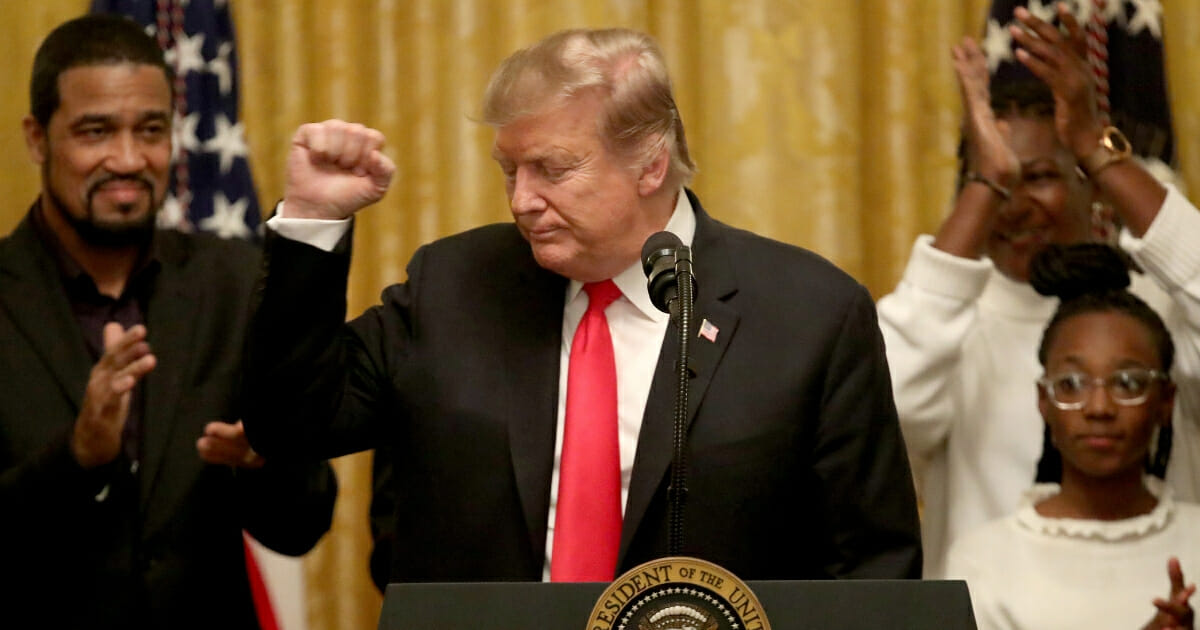
Bob Ehrlich: There's Still Hope for Race Relations in America
Remember when President Obama called for a long-overdue national dialogue on race? Most of us recall the well-publicized call to arms. That a gauntlet had been thrown down by our first black president was without doubt, but few on either side of the aisle were willing to pick up the kryptonite and run with it.
The feeble response was not surprising. Discussions on race are so … awkward. Everyone is on edge, on guard. Too many of us are scared about how what we say will be interpreted that we just shy away from the really tough stuff — the thought-provoking opinions that challenge individual safety zones. As a result, we talk past one another far too often.
Our 44th president’s challenge is never far removed from my mind these days, as race-based appeals carry us further away from Dr. King’s vision of “character first” judgment.
It is indeed a disappointment, as many Americans (myself included) have long believed that race relations in America would improve over time. I was able to maintain this conviction throughout my public career, and not only because I wanted to believe it.
My rationale was solid: I thought the first black president would prove to be a moderating presence regarding race relations — that a growing African American middle class would generate more philosophical buy-in from self-appointed black leaders — that, in the end, green (as in dollars) would ultimately trump (excuse the pun) the black and white divide.
Today, I’m no longer so sure.
My pessimism centers on the emergence of two inter-connected but equally dangerous cultural movements — victimhood and identity politics. Each is destructive in its own right, but together they represent serious and perhaps permanent problems for the future of race relations in America.
Victimhood (and its consequences) is the new bright shiny thing on the left. It has the benefit of covering a lot of ground. For example, it’s convenient as it explains/rationalizes negative life results through a racial lens. The narrative has especially metastasized on the extreme left where the country and culture are seen as bastions of unyielding racism, where life’s uneven playing fields are offered as excuses, not explanations. Per this narrative, racism and racial insensitivity explain instances of failure, poor result, or lack of upward mobility.
Another iteration is equally available but so weak. Here, purveyors of the political trade who have enjoyed America’s advantages — strong families, elite educations, high-paying jobs and professional success — unapologetically cling to their victimhood. Apparently, these children of privilege recognize no other rhetorical option — such is their shallowness.
Alas, while the specter of Ivy League graduates playing this card may be embarrassing to us, it will continue to be used until it doesn’t work anymore.
A first cousin is identity politics — the theory that pre-supposes the color of one’s skin or ethnicity or sexual orientation or religion must dictate one’s political views. This affliction is the other rage among progressives because such a narrow perspective is easy to teach and too often politically rewarding (and expedient) as those whose political identities fail to conform are easily cast aside, marginalized as inauthentic.
For context, check out the treatment of black conservative intellectuals and politicians by the establishment left and their media allies. Here, defining down is so much easier than having to … think. It is accordingly easy to discern why the Thomas Sowells, Condoleezza Rices and Ben Carsons of this world are not appropriately celebrated. They are counterfeit. Their politics does not fit their assigned race or sex. Their high profiles are also mightily inconvenient for the narrative makers and sustainers on the left.
At the end of the day, their careers, life stories, and professional successes are sacrificed on the altar of identity politics. The message to young people is accordingly clear: no role models to be found here — keep turning left…
Some friends of mine believe my rose-colored glasses are blocking out the stark reality of racial politics circa 2019. Still, I have not given up my belief that demonstrable economic progress may indeed reduce racial tension in America.
A good barometer may be the 2020 election. If the Trump economy holds up — and in the process the historic economic progress of minority communities, especially African Americans — it may at the very least help turn our racial dialogue in a more positive direction.
Such would be a timely development in a nation that remains far too divided by skin color.
The views expressed in this opinion article are those of their author and are not necessarily either shared or endorsed by the owners of this website. If you are interested in contributing an Op-Ed to The Western Journal, you can learn about our submission guidelines and process here.
Truth and Accuracy
We are committed to truth and accuracy in all of our journalism. Read our editorial standards.
Advertise with The Western Journal and reach millions of highly engaged readers, while supporting our work. Advertise Today.












